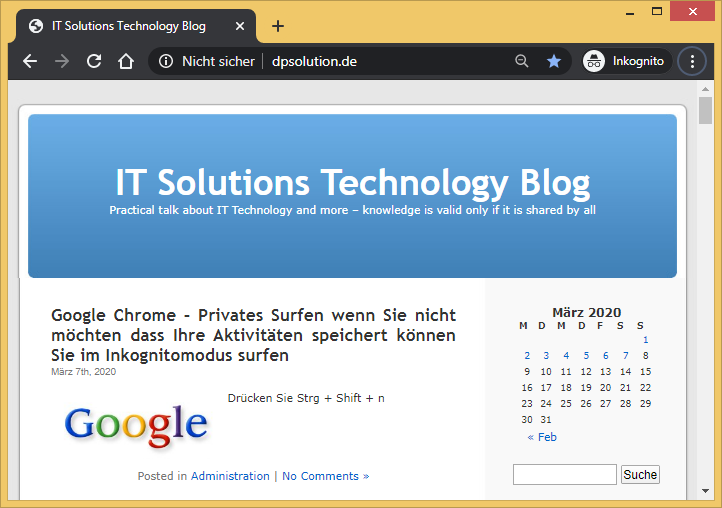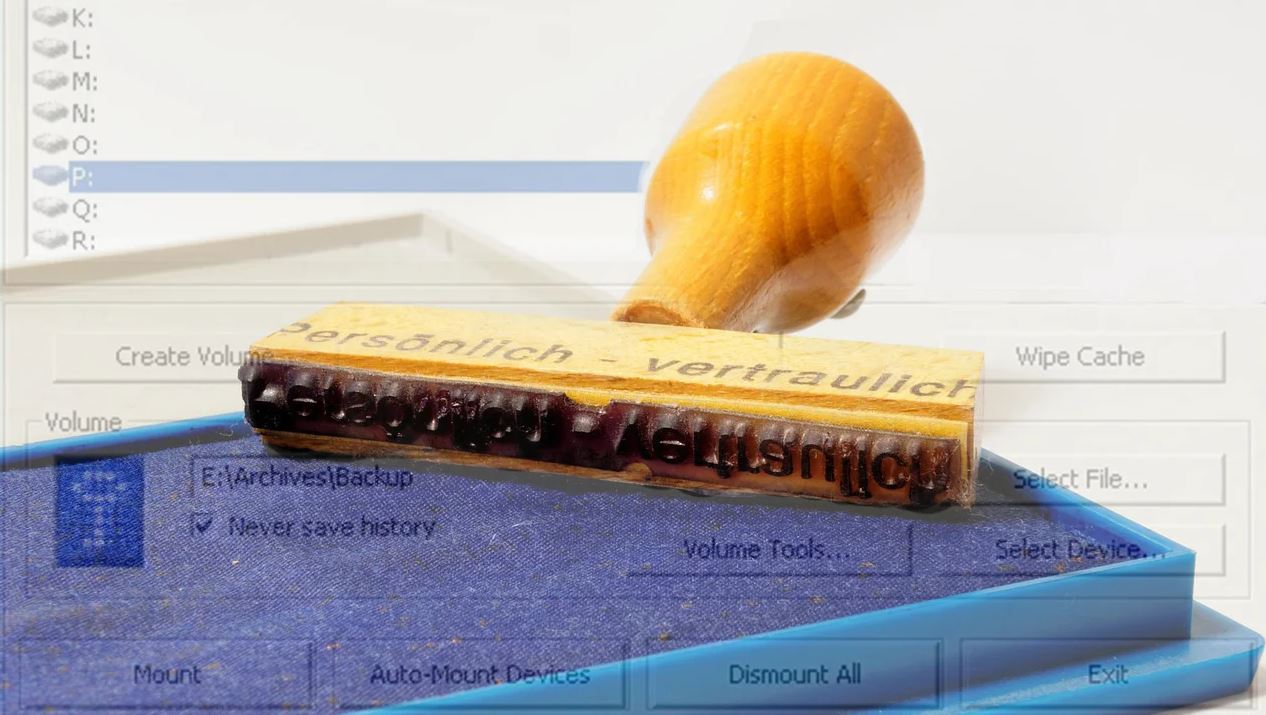Archive for the ‘Security Solution’ Category
Bundesamt für Sicherheit in der Informationstechnik (BSI) – Untersuchungsbericht zum Verschlüsselungsprogramm ‚TrueCrypt‘ offengelegt
Samstag, August 22nd, 2020SourceForge.net: Eraser 6.2.0.2990 – is a secure data removal tool for Windows it completely removes sensitive data from your hard drive by overwriting it several times with carefully selected patterns
Samstag, August 15th, 2020Schuhversand Spartoo – muss € 250.000,- zahlen wegen vieler DSGVO Verstöße
Donnerstag, August 6th, 2020Fresenius Medical Care – Patientendaten in Serbien veröffentlicht bedingt durch Ransomware ‚Snake‘
Samstag, Mai 23rd, 2020YouTube – Phishing
Sonntag, März 29th, 2020Microsoft Windows 10 & Windows Server 2019 – Guidance for Disabling SMBv3 Compression
Donnerstag, März 12th, 2020 The vulnerability exists in a new feature that was added to Windows 10 version 1903 older versions of Windows do not support SMBv3.1.1 compression
The vulnerability exists in a new feature that was added to Windows 10 version 1903 older versions of Windows do not support SMBv3.1.1 compression
You can disable compression to block unauthenticated attackers from exploiting the vulnerability against an SMBv3 Server with this PowerShell command line
Set-ItemProperty -Path „HKLM:\SYSTEM\CurrentControlSet\Services\LanmanServer\
Parameters“ DisableCompression -Type DWORD -Value 1 -Force
You can disable the workaround with this PowerShell command line
Set-ItemProperty -Path „HKLM:\SYSTEM\CurrentControlSet\Services\LanmanServer\
Parameters“ DisableCompression -Type DWORD -Value 0 -Force
Google Chrome – Privates Surfen wenn Sie nicht möchten dass Ihre Aktivitäten gespeichert werden können Sie im Inkognitomodus surfen
Samstag, März 7th, 2020 Drücken Sie Strg + Shift + n damit können Sie im Inkognitomodus surfen
Drücken Sie Strg + Shift + n damit können Sie im Inkognitomodus surfen

Cisco Security Advisories – the Security Vulnerability Policy contains instructions for obtaining fixed software and receiving security vulnerability information
Montag, Januar 27th, 2020Security Advisories – the Security Vulnerability Policy this document also contains instructions for obtaining fixed software and receiving security vulnerability information
Maastricht University (UM) – is currently working day and night on solutions for the major ransomware attack which occurred on Monday, 23 December 2019
Sonntag, Dezember 29th, 2019Bad Homburg Stadtverwaltung – hat ihre IT-Systeme nach eigenen Angaben wegen einer Schadsoftware heruntergefahren
Donnerstag, Dezember 19th, 2019Let’s Encrypt – is a free automated and open Certificate Authority (CA)
Freitag, September 6th, 2019Let’s Encrypt – make it possible to set up an HTTPS server and have it automatically obtain a browser-trusted certificate without any human intervention
SoloKeys Somu – a tiny FIDO2 security key for two-factor authentication and passwordless login
Donnerstag, September 5th, 2019Netgate – configuring a TNSR interface
Mittwoch, Mai 29th, 2019Microsoft Windows 10 Version 1903 & Windows Server Version 1903 Security baseline (DRAFT) – dropping the password expiration policies
Samstag, April 27th, 2019 There’s no question that the state of password security is problematic and has been for a long time – when humans pick their own passwords, too often they are easy to guess or predict. When humans are assigned or forced to create passwords that are hard to remember, too often they’ll write them down where others can see them. When humans are forced to change their passwords, too often they’ll make a small and predictable alteration to their existing passwords, and/or forget their new passwords. When passwords or their corresponding hashes are stolen, it can be difficult at best to detect or restrict their unauthorized use
There’s no question that the state of password security is problematic and has been for a long time – when humans pick their own passwords, too often they are easy to guess or predict. When humans are assigned or forced to create passwords that are hard to remember, too often they’ll write them down where others can see them. When humans are forced to change their passwords, too often they’ll make a small and predictable alteration to their existing passwords, and/or forget their new passwords. When passwords or their corresponding hashes are stolen, it can be difficult at best to detect or restrict their unauthorized use
Why are we removing Password expiration policies?
First, to try to avoid inevitable misunderstandings, we are talking here only about removing password-expiration policies – we are not proposing changing requirements for minimum password length, history, or complexity


